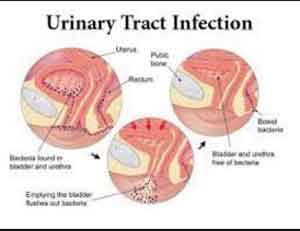- Home
- Editorial
- News
- Practice Guidelines
- Anesthesiology Guidelines
- Cancer Guidelines
- Cardiac Sciences Guidelines
- Critical Care Guidelines
- Dentistry Guidelines
- Dermatology Guidelines
- Diabetes and Endo Guidelines
- Diagnostics Guidelines
- ENT Guidelines
- Featured Practice Guidelines
- Gastroenterology Guidelines
- Geriatrics Guidelines
- Medicine Guidelines
- Nephrology Guidelines
- Neurosciences Guidelines
- Obs and Gynae Guidelines
- Ophthalmology Guidelines
- Orthopaedics Guidelines
- Paediatrics Guidelines
- Psychiatry Guidelines
- Pulmonology Guidelines
- Radiology Guidelines
- Surgery Guidelines
- Urology Guidelines
New antibiotic promising for complicated UTIs

Results from a phase 2 randomized trial suggest that a new investigational antibiotic, cefiderocol, is as effective as the current standard-of-care antibiotics for the treatment of complicated urinary tract infection (UTI) caused by several multidrug-resistant Gram-negative bacteria.
A new study published in the Lancet Infectious Disease reports that scientists have engineered a new antibiotic that appears promising in early clinical trials which acts like the Trojan horse cunningly deceiving bacteria to allow it to enter into.
The study conducted on 448 people with a kidney or urinary tract infection suggested the drug was as effective as current treatments.
Carbapenem-resistant Gram-negative bacteria represent the highest priority for addressing global antibiotic resistance. Cefiderocol (S-649266), a new siderophore cephalosporin, has broad activity against Enterobacteriaceae and non-fermenting bacteria, such as Pseudomonas aeruginosa and Acinetobacter baumannii, including carbapenem-resistant strains.
Read Also: 30 minute antibiotic susceptibility for urinary tract infections
According to Dr Simon Portsmouth, the lead author of the study said, during acute infections, the body’s innate immune responses create an iron-poor environment. As a result, bacteria increase their iron intake. The new antibiotic, cefiderocol, binds to iron and, and the bacterias make the blunder of transporting the antibiotic inside their cells.
Simon Portsmouth and associates conducted a phase 2, multicentre, double-blind, parallel-group non-inferiority trial in 15 countries to assess the efficacy and safety of cefiderocol versus imipenem-cilastatin for the treatment of complicated urinary tract infection in patients at risk of multidrug-resistant Gram-negative infections.
The study participants admitted to hospital with a clinical diagnosis of complicated urinary tract infection with or without pyelonephritis or those with acute uncomplicated pyelonephritis were randomly assigned (2:1) by an interactive web or voice response system to receive 1 h intravenous infusions of cefiderocol (2 g) or imipenem-cilastatin (1 g each) three times daily, every 8 h for 7–14 days.
The exclusion criteria included the presence of more than two uropathogens in urine culture, a fungal urinary tract infection, or pathogens known to be carbapenem-resistant.
The primary efficacy analysis was done on a modified intention-to-treat population, which included all randomly assigned individuals who received at least one dose of study drug and had a qualifying Gram-negative uropathogen (≥1 × 10 5 colony-forming units [CFU]/mL).
The key study findings are:
- 371 patients (n=252 patients in the cefiderocol group; n=119 patients in the imipenem-cilastatin group) had qualifying Gram-negative uropathogen (≥1 × 10 5CFU/mL) and were included in the primary efficacy analysis.
- At test of cure, the primary efficacy endpoint was achieved by 183 (73%) of 252 patients in the cefiderocol group and 65 (55%) of 119 patients in the imipenem-cilastatin group establishing the non-inferiority of cefiderocol.
- Cefiderocol was well tolerated.
- Adverse events occurred in 122 (41%) of 300 patients in the cefiderocol group and 76 (51%) of 148 patients in the imipenem-cilastatin group
- Common adverse events observed were gastrointestinal disorders (ie, diarrhea, constipation, nausea, vomiting, and abdominal pain.
Read Also: Treatment urinary tract infections: Antibiotics better avoided in old patients
The study concluded that intravenous infusion of cefiderocol (2 g) three times daily was non-inferior compared with imipenem-cilastatin (1 g each) for the treatment of complicated urinary tract infection in people with multidrug-resistant gram-negative infections.
The investigators believe the results of this study will provide the basis for submission of a New Drug Application to the US Food and Drug Administration.
For reference log on to https://doi.org/10.1016/S1473-3099(18)30554-1

Disclaimer: This site is primarily intended for healthcare professionals. Any content/information on this website does not replace the advice of medical and/or health professionals and should not be construed as medical/diagnostic advice/endorsement or prescription. Use of this site is subject to our terms of use, privacy policy, advertisement policy. © 2020 Minerva Medical Treatment Pvt Ltd